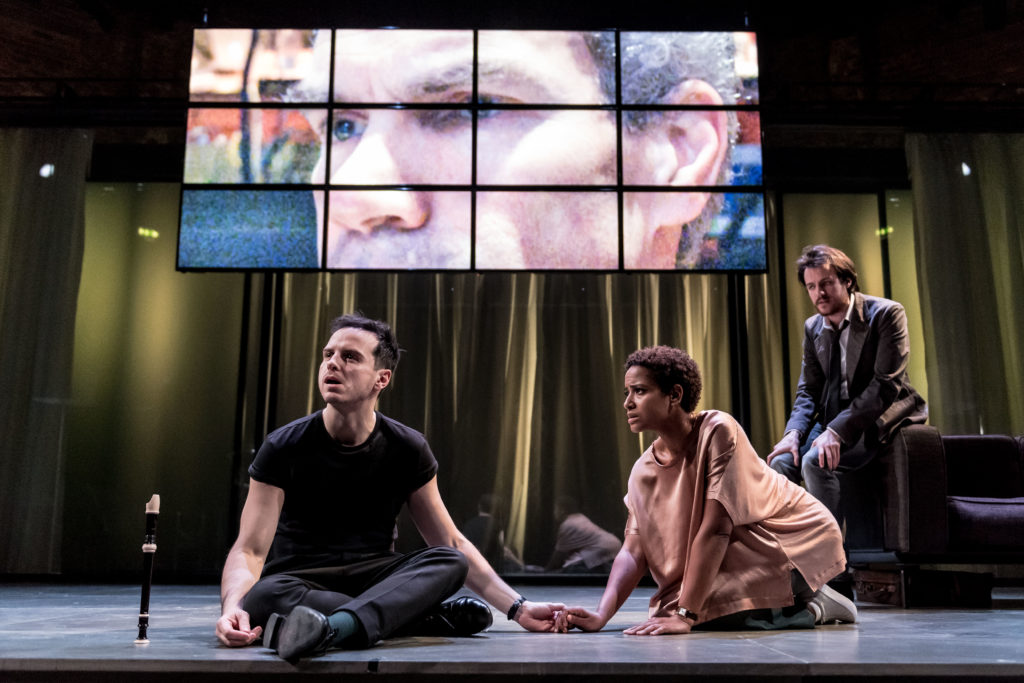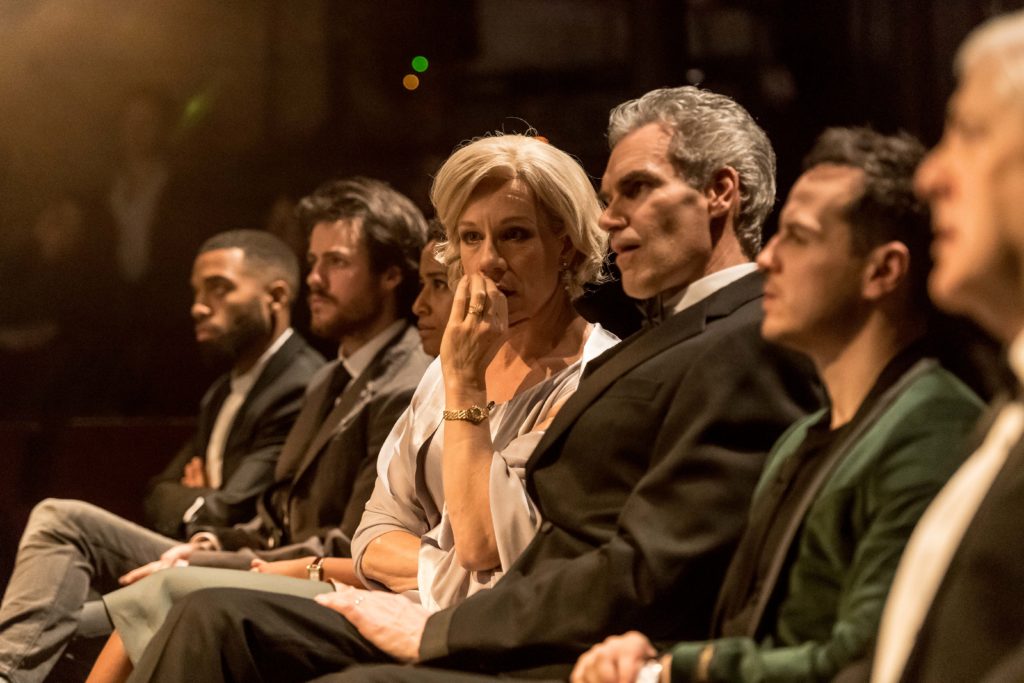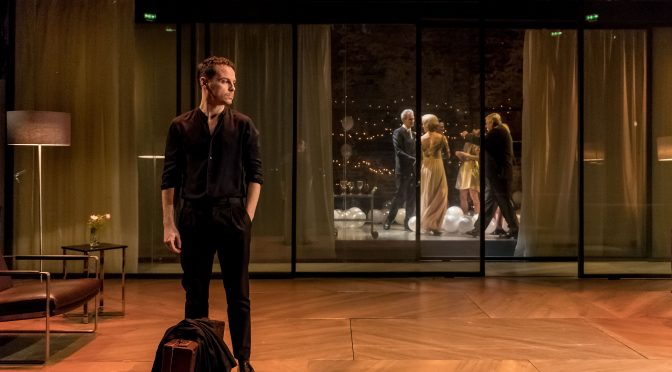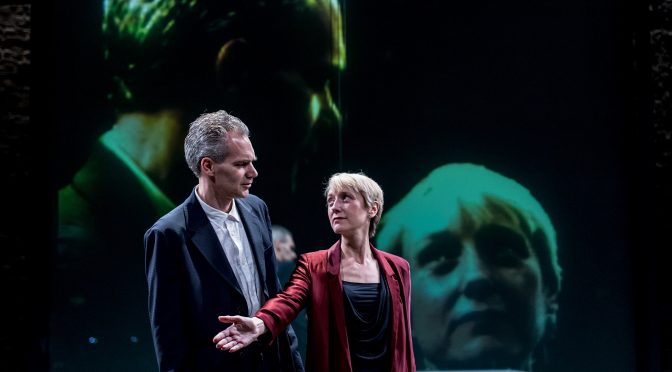With Andrew Scott in the title role, this Hamlet already qualifies as one of the most exciting Shakespeare productions of the year. A consummate and intelligent performer whose lilting accent is a joy to hear, Scott uses the intimacy of the venue superbly. Combining sensitivity and ferocity he makes a strong philosopher prince. He also makes a great team with star director Robert Icke.

Scott’s Hamlet is tactile, all hand holding, wriggling fingers and pressing palms to his face – he even hugs his ghostly father (a brilliant performance from David Rintoul). This is a sensual Dane, aided by the casting of Amaka Okafor as Guildenstern (which adds tension for Calum Finlay’s Rosencratz, who sees Hamlet as a sexual rival). It all focuses us on Hamlet’s morbidity – his knowledge of man as “this quintessence of dust” – a cerebral point given theatrical physicality.
Icke is never short of ideas. He has so many thoughts on Hamlet it’s awe-inspiring. The overall tone is far less histrionic than many a past trip to Elsinor – even the furniture has a tasteful Scandi feel. Such restraint has a peculiar power, most notable in Claudius – a chillingly cold figure played by Angus Wright, whose controlled delivery would try the patience of many performers. It’s the first time I haven’t seen the King storm off the stage during the play-within-a-play and it’s brilliantly unsettling.

Other novel points include the decision to be open about Hamlet’s relationship with Ophelia. It makes more sense of her madness, giving us a modern woman to relate to that Jessica Brown Findlay exploits well. For Peter Wright’s Polonius there’s the suggestion that the respected government minister isn’t just a bore, but is suffering from dementia. And there are the videos and live recordings that are a bit of a trademark for Icke. Denmark as a surveillance state is fair enough, and rolling news broadcasts save some time, but wouldn’t it have been better for Horatio to take charge of the camera after Hamlet asks him to watch the King?
Not all of Icke’s introductions are as successful. Hamlet’s gun toting seems jarring – is it bravado on his part? While it adds shock to his confrontation with his mother (the magnificent Juliet Stevenson), pointing a gun at Claudius become confusing. The production uses a knowledge of the play heavily – a fair assumption – but loses power. An air of predestination predominates later scenes – like the audience, the characters seem to know the end. For much of the final duel, music predominates (it’s a puzzling selection throughout) while Hamlet’s “I am dead Horatio” is taken literally. Our finale – of ghosts at a party rather than corpses littering the stage – has odd tones of reconciliation. It’s all interesting, unmissable for bardophiles, and frequently brilliant, if a little cold.
Until 15 April 2017
Photos by Manuel Harlan


